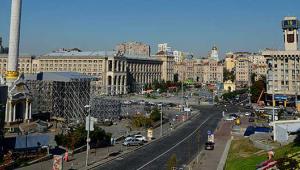web_rome_istock-509475506.png

Rome, Italy. iStock
In its latest report on the Italian economy yesterday, the fund urged the government to renew its efforts to modernise public administration, with key initiatives either delayed or watered down since being first announced in 2015.
Italy’s public sector is well known for its size and bureaucracy being nowhere near matched in efficiency. As well as making it more complex and costly to do business, thousands of government-linked firms dominate local markets.
“Broadening and completing public sector reform are important to raise productivity, lower the cost of business and enhance the gains from other reforms,” the fund’s statement said.
According to the World Bank’s Doing Business indicators for 2016, it takes Italy’s public sector an average of 1,120 days to enforce contracts in commercial disputes, 227 days to issue construction permits and 124 days to connect businesses to electricity – all significantly longer than the OECD average.
The average length of the tendering process, meanwhile, is 210 days, compared to the European Union average of 77.4, while the number of single-bid contracts awarded is close to a third – reinforcing perceptions of not only inefficiency but corruption.
A law to streamline public administration was passed in 2015, which included measures to simplify procedures and accelerate decision-making.
But the fund said the implementation of key parts, such as improving public management or regulating local public services, has been delayed, while others, including plans to make state-owned enterprises more efficient, have been weakened.
The fund said pushing ahead on these, as well as improving the skill mix of the public sector, widening the scope of procurement reform, and tackling privileges and employment in public enterprises – through privatisation and subsidy cuts – were key to fostering growth.
It also called for labour market reform, an opening up of the product and services markets and efforts to heal the country’s ailing banking sector, which is plagued by €360bn worth of bad loans.
The fund welcomed the progress made so far – Italy recently secured a deal with the European Commission to rescue one of its largest banks and bolster its capital buffers – but said this must be accelerated.
Financial fragilities, political uncertainties or any reform setbacks present risks to already slowing growth, it continued. While it said this may “surprise” in the short term, if the eurozone economy strengthens, a return to normal monetary policy by the European Central Bank as a result could prompt a re-evaluation of Italy’s credit risks.
Growth is forecast at around 1.3% this year, the fund continued, but will moderate to around 1% in 2018-20 as favourable terms of trade, fiscal and monetary policy become less supportive.
It warned that under a moderate growth outlook, real income per capita in Italy is expected to return to its pre-crisis levels only several years from now, marking a further deterioration in Italy compared to other euro-area countries.
“Further steps are now needed to narrow competitiveness gaps with euro area partners, reduce imbalances and raise incomes including for those being left behind,” the fund said.
“The current backdrop of cyclical recovery and exceptional monetary accommodation provides a favourable, if narrowing, window to urgently press ahead with reforms.”












